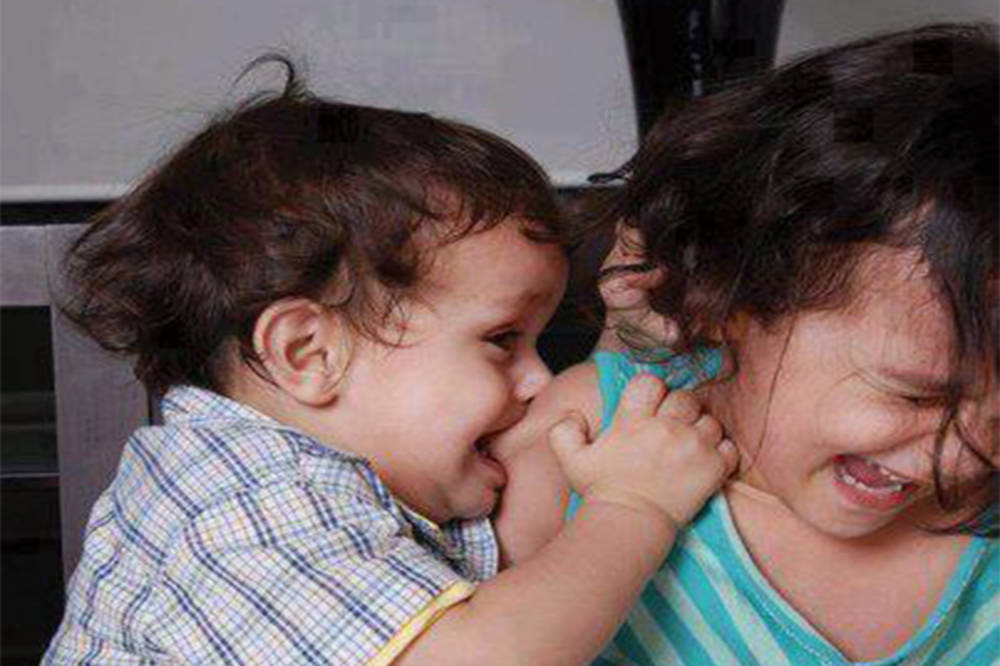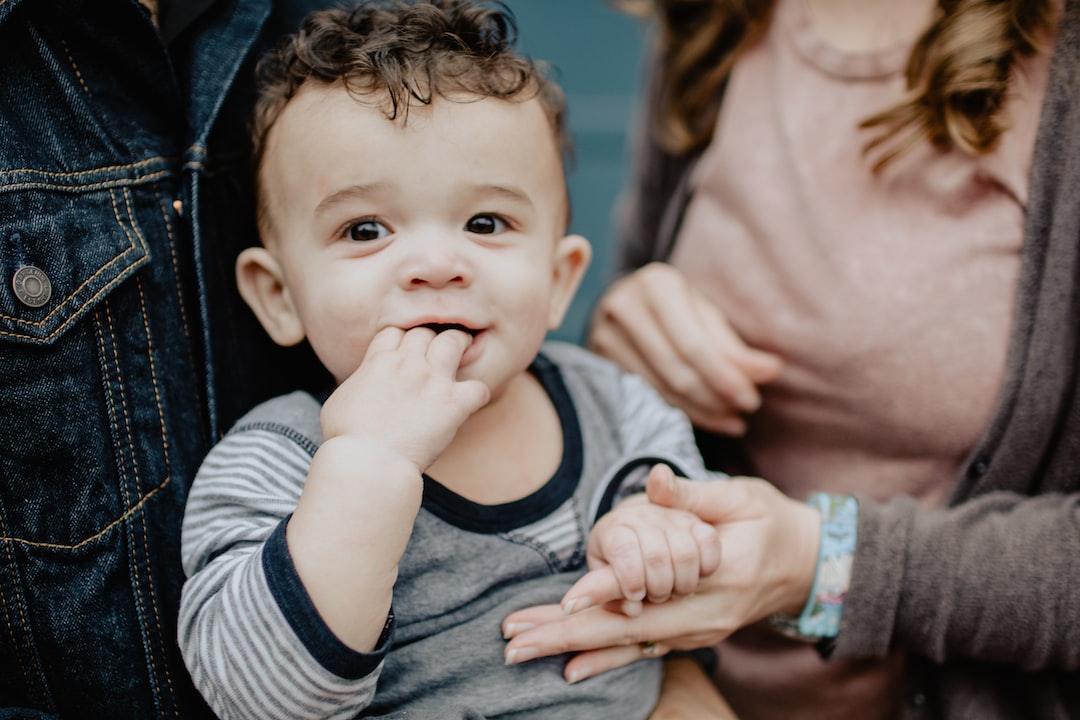Child biting tips! Is your child causing a stir by sinking their teeth into the situation? Biting can be both an emotional and physical response, so it’s essential to figure out what lies beneath. It may take time and patience but understanding why they are biting could help you find ways of communicating with them more effectively!

For many parents, the prospect of their little one taking a bite out of another can be disconcerting. But while it may seem like cause for alarm, biting is actually an expected part and parcel of your child’s development process. Discover pro tips on how to handle this behavior in our article; learn constructive ways to discuss the issue with your youngster so that no harm comes – either physical or emotional – done!
Reasons Why Children Start Biting?
Biting among children is often seen as a “phase” they go through, but it can actually have many different causes. Some might bite when stressed or anxious; others may do so in an effort to communicate with those around them. Teething pain and attention-seeking are also possible motivations behind the behavior, while some kids even lash out by biting if feeling threatened or provoked. It’s important for parents and caregivers to understand why these little ones resort to this kind of expression – because knowing what’s causing their reaction will help you respond effectively! So continue reading this child biting tips!
While the occasional bite is usually nothing to fret over, frequent and injurious biting requires swift action. No parents want their child to be known as the biter in daycare or preschool; take proactive steps today so your kiddo can soon outgrow this normal but troublesome phase!
Here are some child biting tips:
- Is your child expressing their emotions through biting? It’s important to try and figure out the cause – is it frustrations they can’t handle, or a way of communicating what they’re feeling? Once you have an understanding of why this might be happening, work together with them to find different ways for them to get those feelings out.
- Showing emotions can be hard, especially for kids. Encouraging them to express themselves through words or art is a great way to help build their emotional intelligence and resilience!
- Not all creatures great and small appreciate the same kind of treatment. If your pet’s biting misbehavior is getting out of hand, you may want to try a different approach – ignore it! Believe it or not, even this type of attention does nothing but encourage their bad habits.
- Keep your little one’s engine running with some positive activities, such as a playful jaunt outdoors or an engaging session of imaginative play.
- Positive reinforcement is key when it comes to disciplining your little ones! Show them some extra love and appreciation with thoughtful rewards- like verbal affirmations or a special treat -when they don’t bite.

How To Respond To A Child Who Is Biting
If your kid is sinking their pearly whites into something they shouldn’t, it’s critical to handle the situation with care. Don’t let frustration get the best of you; keep composed and stay positive – there are plenty of ways to curb this behavior without escalating it!
Here are some tips for responding to a child who bites:
- When a child bites, stay cool! Keeping your anger in check is key – it’ll help you from escalating the situation and ruining everyone’s day.
- When your child takes a nibble of their fellow playmates, teach them that chomping isn’t the way to go. Respond with swiftness and clarity – say “no” in an assertive tone, then take some time to explain why biting is off-limits.
Behavioral Chart For Biting
Tired of your little one gnawing on someone else? Create a behavioral chart to track and help prevent biting! Start by jotting down the dates or days in a week, then put an X for each time they bite. At the end of each week you can tally up their bites – if it’s less than five times, reward them with something special! If it’s more than that…well let’s just say no rewards this time around 😉

Conclusion
If your little one has developed a habit of biting, don’t panic! Before you can tackle the issue, try to identify why it’s happening. Are they feeling overwhelmed? Has their daily routine been altered lately? Do they need more activities or restful moments? Pinpointing the root causes of this behavior will help direct you towards an effective solution – whether that entails providing stimulating experiences for curiosity-seekers or ensuring your child is well fed and rested after a hectic day.
Looking to shape your little one’s behavior? Praise is key! Building positive reinforcement around good conduct can go a long way in teaching kids that bad habits, like biting, aren’t acceptable. If you’re still not seeing any improvement after consistently demonstrating this type of reward system – don’t worry; there are plenty of professionals who specialize in dealing with these types of situations and helping both parent and child identify the source of the issue so they can figure out how to nip it once and for all.
Reading Suggestions:


